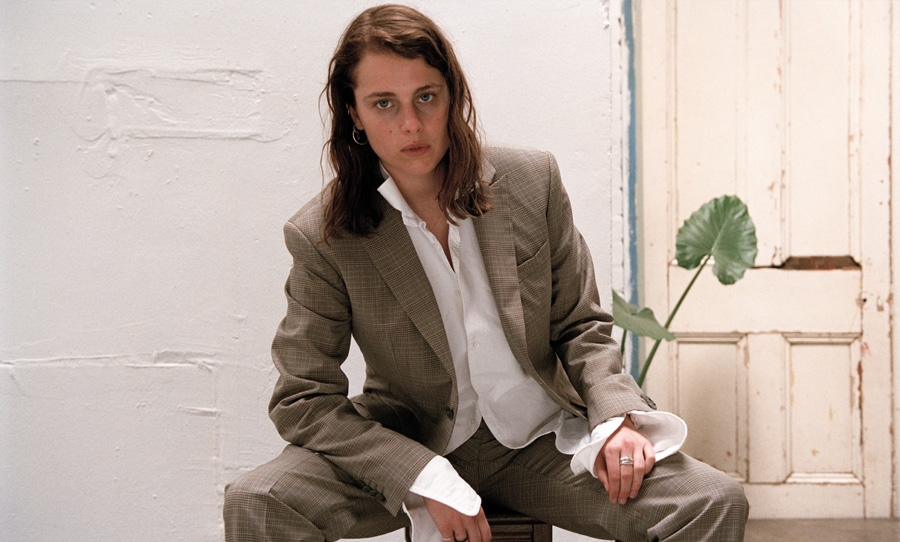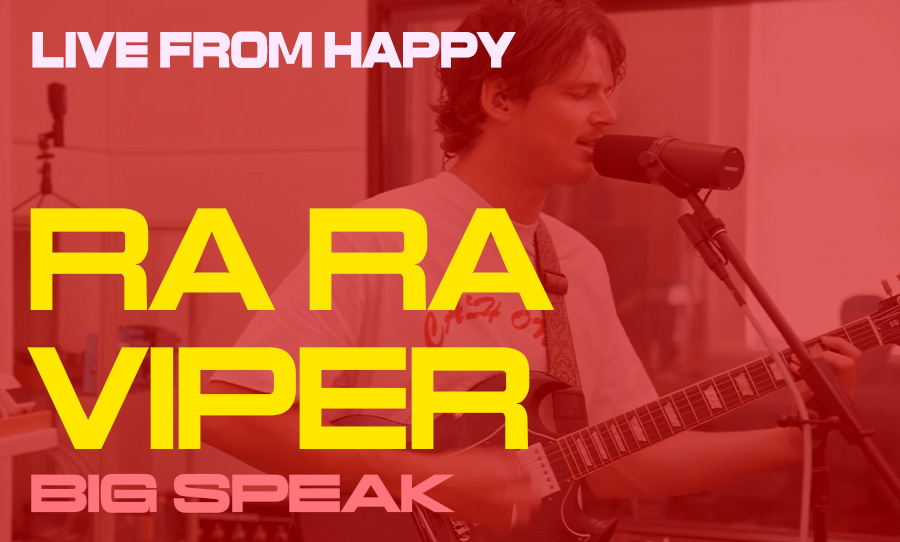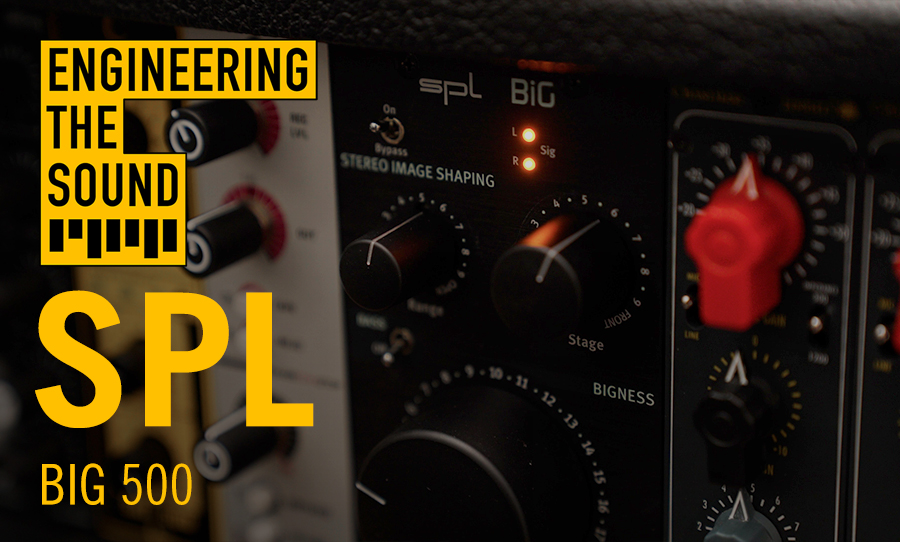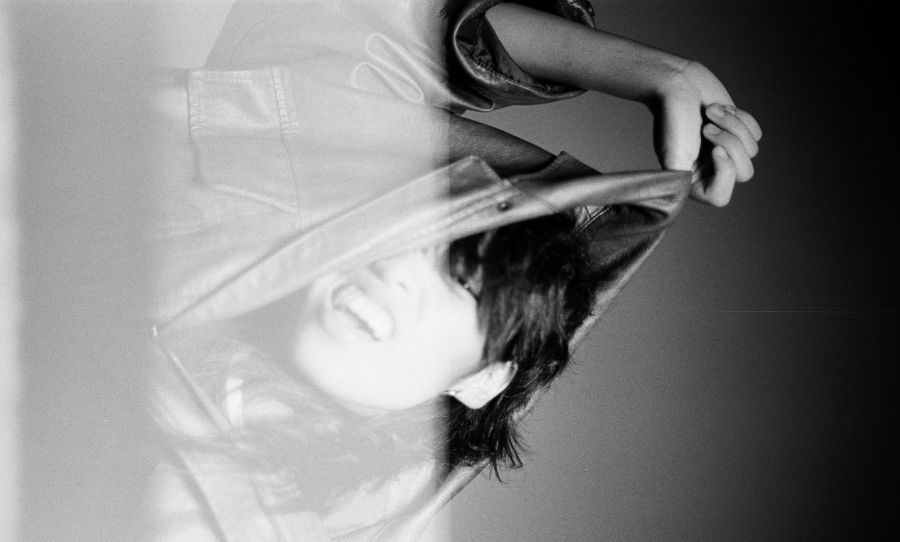When Marika Hackman released her single i’m not where you are earlier this year, it signalled a new direction for the Hampshire artist. It channelled the provocative elements of her earlier work and focused it—sharpened it—into something unashamedly direct.
On her new album Any Human Friend, Hackman displays no interest in sugarcoating her words. She lays it all out bare for listeners to interact with. So, shortly before the album’s release, we caught up with Hackman to chat about the process of letting audiences into her personal world, how to deal with bad reviews, and piglets.
“It’s all about putting yourself out there. It’s exciting“: Marika Hackman chats her provocative new album, dealing with bad reviews, and piglets.
HAPPY: The new album’s done! How does it feel having it all done?
MARIKA: It’s a really nice feeling. All that hard work is done, I’m really proud of it, and now I’m ready to unleash it on the world. So it’s really exciting. This is my favourite bit… the week leading up to the release. There’s a buzz.
HAPPY: The way I hear people talk about albums is that while their writing and recording it, it belongs to them. But the moment they release it, it no longer does. Has this been true for you?
MARIKA: Umm, no, I always feel like it belongs to me. I feel like it always belongs to me because it’s my experience, and it’s something I’ve created. When people buy and listen to it, it’s like they’re having a conversation with me. It opens the dialogue, which you don’t get when you’re writing. When I’m writing and recording, I feel quite lonely. It’s a solitary project. When I release it, it opens up the conversation, which is a massive relief.
HAPPY: So instead of giving it up to other people, it’s more about inviting other people in…
MARIKA: Yeah, exactly.
HAPPY: What’s that process like of letting other people in? Is it ever a scary thing?
MARIKA: Yeah, sometimes I get scared earlier on… just after I’ve written a song or something. But generally with the release, that all goes away. Once you give up control, and once it’s out in the world, I find that to be a massive relief. I love hearing what people think about what I’ve done. I love reading people’s thoughts on what I’ve done, I find it really interesting.
HAPPY: So you engage with reviews of your own music?
MARIKA: Yes, completely. I actively seek them out. If I’ve been making working on something for a year or two years, it’s exciting to see what people think. It’s exciting to see if you’ve succeeded with whatever the aim of that record was. It’s interesting to see what people are picking up on.
HAPPY: If you ever get a bad review, how do you engage with those?
MARIKA: If I ever get negative feedback, it’s not something that I take on board like a teacher marking my work. That doesn’t really feed into where I go next. I use the positives to see what worked well. Dwelling on the negatives, that would really fuck you up after a while. I read them, say “whatever“, then keep on doing what I’m doing anywhere. It’s all about putting yourself out there. It’s exciting.
HAPPY: I love the artwork of the album too. Could you tell us a bit about the pig? Where did she come from? Does she have a name?
MARIKA: The pig didn’t have a name. She was only six weeks old… I wanted to name her, but I couldn’t think of anything on the spot that was good enough. It’s a pretty big process, getting animals. You have to get permits… like traffic permits, and licences. You have to go to a company that specializes in animals. It was a very intense experience. I wasn’t anticipating all the paperwork.
HAPPY: It’s not as simple as taking a trip down to the local pig store…
MARIKA: No, you can’t just drive past a farm and yank one out.
HAPPY: Well, you could… but it might be frowned upon.
MARIKA: Yeah, I might not be allowed to have that as an album cover.
HAPPY: The cover art references the work of Rineke Dijkstra and her portraits of women after giving birth. So I guess the next question is, why hold up a piglet in that photo?
MARIKA: The reason I chose the pig was because… it’s not supposed to be like I’ve just given birth. I chose the pig because, as humans, we project a lot of ideas of what we think a pig is onto the pig. They’re dirty and they smell, they’re ugly and they’re stupid, and we don’t treat them very nicely. When actually, they’re very clean creatures, they’re really really intelligent, they’re quite sexual—they can orgasm for a really long time, they have a similar genetic build as humans. Me holding the pig, I’m saying “hey, it’s okay… I’m standing here, I’m exposed, I’m inhabiting this space,” and I’m holding the pig there to say, “you’re alright too. You’re right here with me, I’m not judging.” We should take anything for what it is, not what we think it is. That’s a huge problem for a lot of people – they’ve been given an identity that doesn’t actually align with what they really are.
HAPPY: Why reference Dijkstra then? What was it about her work that you were hoping to capture in your own album art?
MARIKA: It’s the way these women are presented… they’re very unsexualised, they’re very raw. It’s all very vulnerable. But there’s something about the way they’re standing that gives them such incredible strength and beauty. I wanted to get the rawness and the realness of it. It’s a very female realness. To me, that’s a big theme of the record. It felt like a good way of translating that into the visual. It felt bold, and I want to be bold.
HAPPY: On the theme of vulnerability… you’ve said that releasing the art was “terrifying”. Why do you think that was?
MARIKA: Yeah, it was terrifying the day before. Then when it actually came out, that all went away. I think I was nervous because, as much as I am an artist and a creative person, I’m also quite vain and shy. It’s a side of me that’s been pulled along by the creative side, and I put that side on the cover. You start to think ‘oh, maybe I don’t look that good’, and that’s the whole reason I wanted to do it. That’s the whole point. The reason I didn’t feel like I looked that good was because I never see people that look like me. I don’t see people that I feel look real, or people that represent 95% of the women I have around me in my life. Then I go ‘fuck it, I’ve got to do it’. But I’m human, I get nervous. It’s quite scary standing there in your pants, effectively in front of however many people that’s going to get to.
HAPPY: The album as a whole feels far bolder and direct than past releases. Was this a direction you consciously pulled yourself in?
MARIKA: Yeah, I think so. There were certainly times when I wanted to take the directness I’ve had on previous records, and push that across the entire album. I wanted to go there, be really honest, make that connection, and put everything upfront. It felt very natural. It wasn’t forced, and I didn’t struggle – it was really easy.
HAPPY: You’ve said that although the lyrics on this album are far more explicit than anything you’ve put out before, you’ve never felt safer. Why do you think that is?
MARIKA: Yeah, I think it’s because I’ve grown up a lot. I’ve really come into my space as a songwriter. I really know who I am on that front, so I feel really confident about what I’m putting out. I’m really proud of everything I’ve done on this record. I feel like I really know what I’m doing. I feel like I’ve come full circle.
Any Human Friend is out now. Listen above, and grab yourself a copy here.




